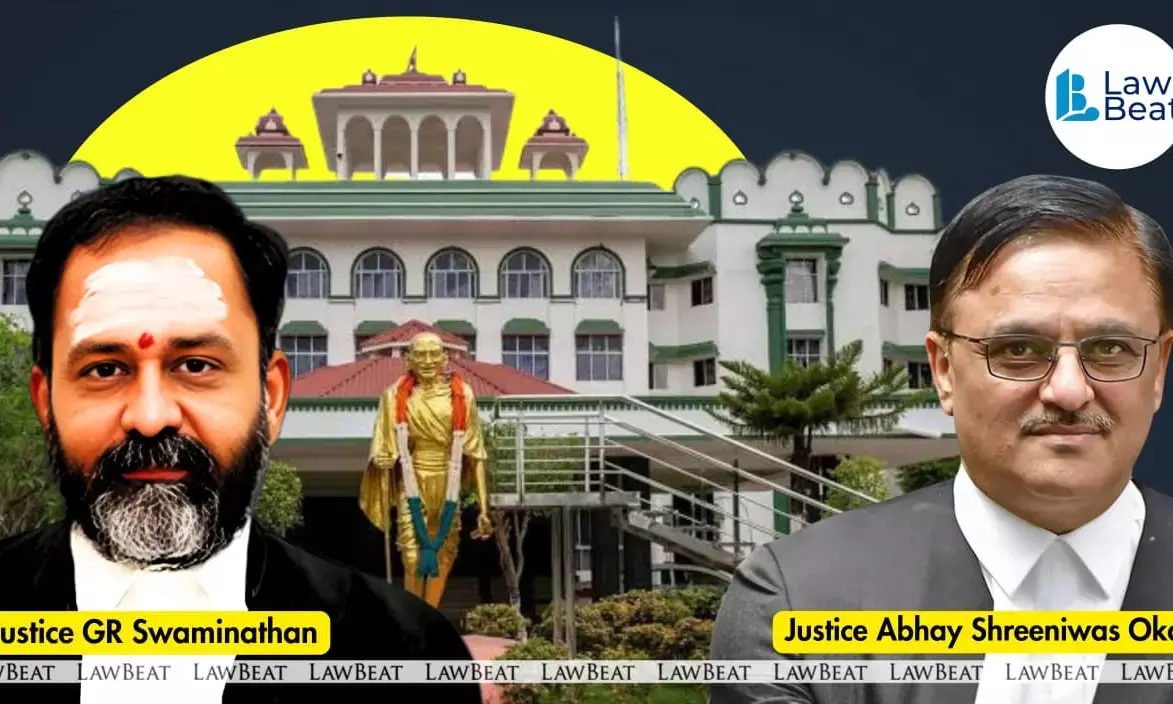‘Judges Should Be Bold, Not Popular’: Madras HC Quotes Justice Abhay Oka While Quashing Hospital Licence Cancellation

The Madras High Court restores Cethar Hospital's organ transplant license
The Madras High Court at Madurai Bench on Monday, November 3, 2025, set aside the Tamil Nadu government’s decision cancelling the liver and kidney transplant licence of Tiruchirappalli-based Cethar Hospital, holding that the authorities had violated statutory provisions under the Transplantation of Human Organs and Tissues Act, 1994.
The bench of Justice G.R. Swaminathan, while allowing the hospital’s writ petition, found that the cancellation order dated August 18, 2025, issued by the Director of Medical and Rural Health Services, was passed 'in total disregard' of the procedure mandated by law.
Court also took note of the larger public controversy surrounding organ transplant practices in Tamil Nadu. The Additional Advocate General submitted that the matter had created a political storm and led to the constitution of a Special Investigation Team (SIT) by a division bench to probe the allegations. He hinted that quashing the cancellation order might draw public criticism.
In a strongly worded response, Justice Swaminathan said that judges must remain insulated from public pressure and act only in accordance with law. “In popular perception, the hospital might stand condemned. But I won’t crucify without following due process,” the judge remarked, adding that morality for judges lies in adhering to law and the Constitution, not popular sentiment.
He quoted Supreme Court judge Justice Abhay S.Oka who recently remarked that "judges should be prepared to deliver judgments which are not liked by the popular majority. ... The basic rule is that the Judges should not be swayed by popular opinion, and that is the concept of morality for Judges".
Cethar Hospital, a private facility licensed to perform liver and kidney transplants, had first faced a temporary suspension of its licence on July 23, 2025, before the final cancellation followed less than a month later. The hospital contended that the impugned orders were arbitrary and violated Section 16 of the 1994 Act, which requires prior notice and hearing before such punitive action.
Defending the decision, the State argued that the writ was not maintainable as the hospital had already filed an appeal before the Government under Section 17 of the Act. Additional Advocate General Ajmal Khan urged the court to adopt the same approach taken in another similar case involving Dhanalakshmi Srinivasan Hospital, where the court had directed the hospital to pursue the statutory appeal instead of approaching the High Court.
However, Justice Swaminathan rejected this contention, relying on the Supreme Court’s 2004 judgment in S.J.S. Business Enterprises v. State of Bihar, which held that a petitioner could choose to withdraw one remedy and pursue another. The petitioner cannot ride two horses at the same time, but can elect to pursue the writ remedy alone, the judge observed.
Emphasising that a hospital’s reputation and right to carry on business cannot be jeopardised without fair hearing, court held that the statutory procedure under Section 16 was “completely ignored” and that the cancellation order was a “rank illegality".
Accordingly, the High Court quashed the order cancelling Cethar Hospital’s licence. The earlier suspension, having merged with the cancellation, was not revived. The authorities, however, were granted liberty to initiate proceedings afresh in accordance with the law.
Case Title: M/s.Cethar Hospital vs. The Principal Secretary to the Government,Department of Health and Family Welfare, Government of Tamil Nadu and Others
Order Date: November 3, 2025
Bench: Justice GR Swaminathan
